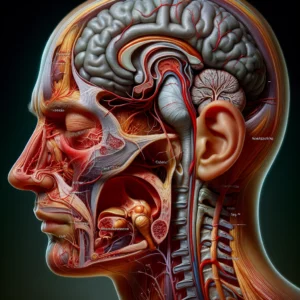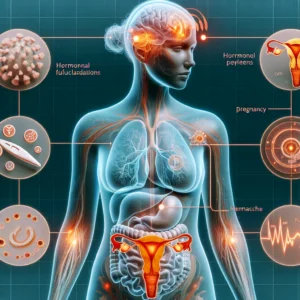Ultimate Resource for Identifying Headache Causes and Mastering Relief Techniques
Headaches represent a widespread health issue that impacts millions of individuals, frequently interfering with day-to-day activities and reducing overall productivity. These distressing episodes manifest in numerous forms, each type having unique triggers and symptoms that require tailored approaches for effective relief. To manage headaches proficiently, it is crucial to cultivate a comprehensive understanding of the various types of headaches, along with their origins and symptoms. By acquiring this knowledge, individuals can customize their treatment plans to meet their specific experiences, which ultimately leads to a more effective and personalized strategy for dealing with this common health challenge.
Whether you experience sporadic headaches or endure chronic pain, pinpointing the root causes is essential for selecting the right treatments and implementing beneficial lifestyle changes. As you investigate headache management solutions, consider a diverse range of therapies which include both conventional and alternative methods. Approaches such as balanced acupuncture, neurological acupuncture, and manual therapy can effectively target the underlying sources of discomfort, empowering you to regain control over your health and improve your overall well-being.
By delving into these various treatment options, you can embark on a holistic journey aimed at alleviating headaches while simultaneously enhancing your overall health and wellness.
Essential Tips for Crafting Effective Headache Management Strategies
- Tension headaches rank as the most prevalent type, featuring a continuous band-like pressure encircling the head, often intensifying during periods of stress.
- Migraine headaches are characterized by severe, pulsating pain that usually accompanies nausea, vomiting, and heightened sensitivity to light and sound, severely disrupting daily activities and routines.
- Cluster headaches are notorious for their excruciating pain, occurring in cyclical patterns and typically centered around one eye, making them among the most painful types of headaches.
- Sinus headaches are associated with sinusitis, causing pressure and discomfort in the forehead, cheeks, and nasal areas, often exacerbated by allergies or infections.
- Hormonal headaches primarily affect women and are linked to hormonal changes, frequently arising during menstruation, pregnancy, or menopause, necessitating specialized management strategies.
 Detailed Examination of Tension Headaches and Their Precursors
Detailed Examination of Tension Headaches and Their Precursors
Recognizing Common Patterns and Triggers Linked to Tension Headaches
Reflecting on your own headache experiences can significantly aid in pinpointing specific patterns that may trigger tension headaches. Various factors such as extended hours spent at a computer desk, emotional stress, or inadequate ergonomic setups can substantially contribute to the development of these headaches. Identifying these triggers is crucial for preventing future headaches and safeguarding your overall health. Common contributors to these episodes include workplace stress, insufficient sleep, and even dehydration, all of which can worsen your discomfort. Maintaining a comprehensive headache diary can help track the timing and underlying causes of these headaches, allowing you to take proactive measures to lessen their impact on your daily life.
Implementing a Comprehensive Strategy for Effective Tension Headache Relief
A multifaceted approach is often necessary for effectively alleviating tension headaches. Incorporating therapies such as balanced acupuncture can help restore the body’s energy flow by concentrating on specific acupoints that may contribute to muscle tightness and stress. Additionally, integrating relaxation techniques such as deep breathing exercises or yoga can significantly diminish tension while enhancing overall wellness. By addressing both physical and emotional stressors through a holistic strategy, you can markedly reduce the frequency and severity of tension headaches, ultimately enhancing your quality of life.
Enhancing Relief Through Neurological Acupuncture and Manual Therapy Modalities
Neurological acupuncture can further bolster your relief efforts by focusing on the role of the nervous system in pain perception. This specialized technique emphasizes the pathways involved in headache development, potentially altering your brain’s response to pain signals. When combined with manual therapy modalities, such as massage or myofascial release, you may experience notable relief from the tension that often exacerbates your headaches. Together, these therapies can create a synergistic effect, alleviating pain while fostering lasting relaxation and improved well-being.
 Thorough Insights into Migraine Headaches and Their Effective Management
Thorough Insights into Migraine Headaches and Their Effective Management
Migraines are not just severe headaches; they are complex neurological events that can incapacitate individuals for hours or even days. Characterized by excruciating, throbbing pain typically localized to one side of the head, migraines often occur alongside additional symptoms like nausea, vomiting, and heightened sensitivity to light and sound. Various triggers, including certain foods, hormonal fluctuations, and environmental factors, can spark these debilitating episodes, highlighting the necessity of identifying and managing these influences for effective treatment.
Effective migraine management typically adopts a comprehensive approach. While medications may offer immediate relief during an attack, incorporating therapies like acupuncture can significantly reduce the frequency and severity of future migraine episodes. Neurological acupuncture specifically targets the pain pathways associated with migraines, potentially altering your brain’s response to pain stimuli and breaking the cycle of recurring attacks.
When complemented by manual therapy techniques aimed at relieving muscular tension and improving blood circulation, you may uncover a more holistic strategy for managing migraine headaches effectively, empowering you to reclaim your daily life from the clutches of these distressing episodes.
In-Depth Investigation of Cluster Headaches: Patterns, Triggers, and Intensity
| Metrics | Data |
|---|---|
| Prevalence | 1 in 1,000 adults |
| Age of onset | 20-40 years old |
| Duration of attacks | 15 minutes to 3 hours |
| Pain intensity | Severe, often described as the worst pain experienced |
| Frequency of attacks | 1 to 8 times a day |
Cluster headaches are recognized as some of the most intense headache types, often featuring a burning or piercing pain that occurs in cyclical patterns or clusters. You may experience these attacks multiple times throughout the day over several weeks or months, followed by periods of complete relief. Typically, the pain is localized around one eye or one side of the head and may be accompanied by additional symptoms such as nasal congestion or tearing, intensifying the distress of the experience.
Due to their extreme severity, cluster headaches necessitate prompt and effective management strategies. While traditional medications may offer limited relief, exploring alternative therapies like acupuncture can significantly diminish both the frequency and intensity of these painful episodes. By targeting specific points related to the trigeminal nerve—the primary nerve involved in headache pain—neurological acupuncture can help regulate your body’s pain response, potentially alleviating some of the challenges associated with cluster headaches.
When combined with manual therapy techniques aimed at fostering relaxation and reducing stress levels, you may find a more balanced and effective approach to managing these intense headache episodes, ultimately improving your quality of life.
 Strategic Approaches for Addressing Sinus Headaches Effectively
Strategic Approaches for Addressing Sinus Headaches Effectively
Sinus headaches typically occur when inflammation or infection in the sinus cavities leads to uncomfortable pressure and pain in the forehead, cheeks, and around the eyes. You might also experience these headaches alongside nasal congestion, facial tenderness, and even fever. Understanding the root causes of sinus headaches is crucial for effective treatment, as they often arise from allergies or respiratory infections that can worsen your symptoms, creating a cycle of discomfort.
Utilizing a combined approach of therapies can be particularly beneficial in effectively addressing sinus headaches. Acupuncture has been demonstrated to reduce inflammation and promote drainage within the sinuses, alleviating the pressure and discomfort associated with these headaches. Employing balanced acupuncture techniques specifically targets acupoints related to sinus health, while neurological acupuncture can address any pain pathways connected to your suffering.
Moreover, integrating manual therapy can relieve tension in the neck and shoulders, which may further exacerbate sinus pressure. This comprehensive and multifaceted strategy can provide substantial relief from the discomfort associated with sinus headaches, allowing you to breathe easier and enjoy a more comfortable daily experience.
 Delving Into Hormone-Related Headaches and Their Effective Management Solutions
Delving Into Hormone-Related Headaches and Their Effective Management Solutions
Understanding the Intricate Connection Between Hormones and Headache Patterns
Exploring the complex relationship between hormones and headache occurrences can empower you to take proactive steps in managing these specific headaches. Hormonal fluctuations, particularly in women, can trigger painful headaches, often coinciding with menstrual cycles, pregnancy, or menopause. By recognizing these patterns, you can better anticipate and prepare for potential headache episodes, leading to more effective management strategies.
Utilizing Natural Remedies for Effective Hormone-Related Headache Relief
To alleviate hormone-related headaches, consider integrating therapies that aim to balance your body’s energy and hormonal levels. Acupuncture has been shown to help regulate hormonal fluctuations by stimulating specific acupoints that influence endocrine function. Additionally, neurological acupuncture can enhance this approach by addressing the nervous system’s role in pain perception during hormonal shifts, offering a more comprehensive treatment experience that targets the root causes.
Embracing a Holistic Strategy for Managing Hormone-Related Headaches
When combined with manual therapy techniques designed to encourage relaxation and alleviate stress, you may uncover a more effective approach to managing hormone-related headaches. This holistic strategy can help you navigate the complexities of hormonal changes, equipping you with the tools necessary to reduce pain and enhance your overall quality of life, enabling you to thrive even amid these fluctuations.
 Practical Strategies for Escaping the Cycle of Rebound Headaches
Practical Strategies for Escaping the Cycle of Rebound Headaches
Rebound headaches typically arise from the excessive use of pain relief medications, leading to a cycle of dependency and an increase in headache frequency. You may find yourself reaching for over-the-counter pain relievers more often than intended, only to experience worsening headaches as the medication’s effectiveness diminishes. Recognizing this cyclical pattern is essential for breaking free from rebound headaches and regaining control of your health.
To effectively manage rebound headaches, it is crucial to reduce your reliance on medications while gradually exploring alternative therapies. Acupuncture offers a natural solution for alleviating pain without resorting to pharmaceuticals. Implementing balanced acupuncture techniques can restore energy flow and promote relaxation, while neurological acupuncture targets the underlying pain pathways affected by medication overuse.
By integrating manual therapy techniques that focus on relieving tension and reducing stress, you can develop a comprehensive strategy for breaking the cycle of rebound headaches. This holistic approach ultimately empowers you to take charge of your health and well-being, significantly enhancing your overall quality of life.
 Effective Techniques for Understanding and Managing Mixed Headaches
Effective Techniques for Understanding and Managing Mixed Headaches
Mixed headaches pose a unique challenge as they encompass characteristics from multiple headache types, complicating both diagnosis and treatment. You might experience symptoms resembling tension headaches one day and migraines the next, making it crucial to customize your management strategy based on your specific symptoms. Understanding the complexities associated with mixed headaches is essential for creating an effective treatment plan tailored to your individual needs.
Consider adopting a comprehensive approach that incorporates various therapies to effectively manage mixed headaches. Acupuncture can be particularly beneficial for addressing the diverse symptoms associated with mixed headaches by targeting multiple acupoints relevant to different headache types. Additionally, neurological acupuncture may assist in modulating pain perception across numerous pathways, while balanced acupuncture fosters overall well-being and alleviates discomfort.
Furthermore, manual therapy techniques can effectively relieve muscle tension and stress that may contribute to headache development. By integrating these varied approaches, you can create a personalized strategy for managing mixed headaches, significantly enhancing your overall quality of life.
Frequently Asked Questions Regarding Headaches and Their Management
What are the various types of headaches?
There are several distinct types of headaches, including tension, migraines, cluster, sinus, and hormonal headaches. Each type has unique characteristics and treatment options, necessitating tailored approaches for effective management.
Could you elaborate on tension headaches?
The Article Types of Headaches Explained: A Comprehensive Guide appeared first on https://mcrtherapies.com
The Article Headache Types Explained: Your Comprehensive Guide Was Found On https://limitsofstrategy.com
The Article Headache Types: A Thorough Guide to Understanding Them First Appeared ON
: https://ad4sc.com



Comments are closed